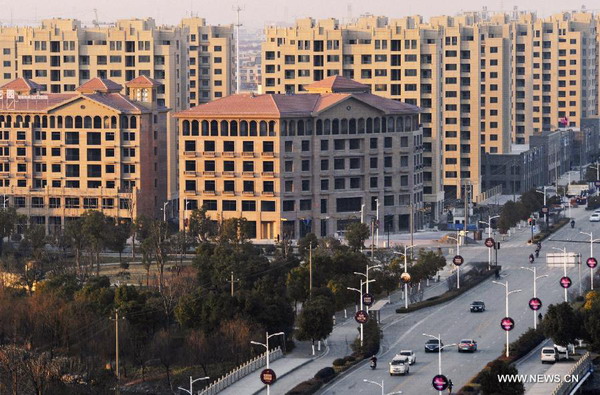 |
|
Photo taken on Jan 1, 2015 shows a commercial apartment project in Huzhou, East China's Zhejiang province.?[Photo/Agencies] |
BEIJING - China's real estate market has continued a downward trend with new home prices in January registering month-on-month declines in most of surveyed cities.
Of 70 large and medium-sized cities surveyed, 64 saw new home prices drop in January from the previous month, according to data released on Tuesday by the National Bureau of Statistics (NBS).
Meanwhile, new home prices were flat in Shanghai, Nanjing, Nanchang and Guangzhou last month, while Shenzhen and Ganzhou saw prices rise 0.3 percent and 0.2 percent respectively from December, the NBS data showed.
For existing homes, prices in 61 cities declined in January from the previous month, while six cities recorded gains, and three saw prices flat.
Related story:
China's property sales to see narrower decline, by Xinhua
BEIJING - China's property sales will continue their steady downward progress in 2015, rating agency Moody's said on Wednesday.
A Moody's research note said that the property sales will decline by between 0 percent and 5 percent in 2015, compared to a 7.8 percent decline in 2014.
Moody's attributed the slightly reduced decrease to policy changes including greater availability of mortgages and improved buyer sentiment. Property prices will remain under pressure as developers push price incentives to boost sales. New projects and weaker GDP growth will also suppress prices.
The number of cities registering more than a 5 percent year-on-year declines in home prices doubled to 23 in December from 11 in November, according to data from the National Bureau of Statistics.
Since last October, policies including fewer restrictions on home purchases, eased mortgage rules, and an interest rate cut in November, have been used to avoid a sharp slowdown in the sector out of fear of jeopardizing the broader economy.
